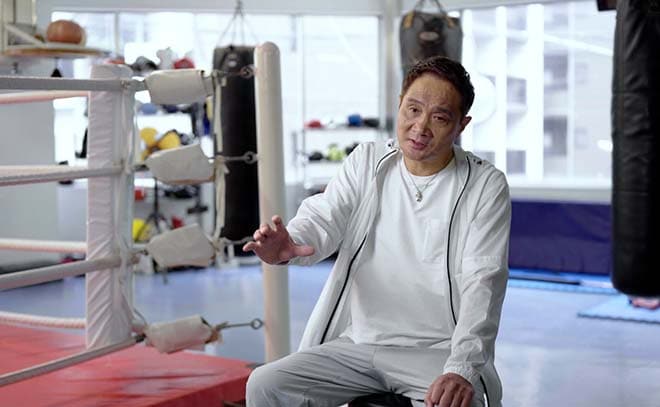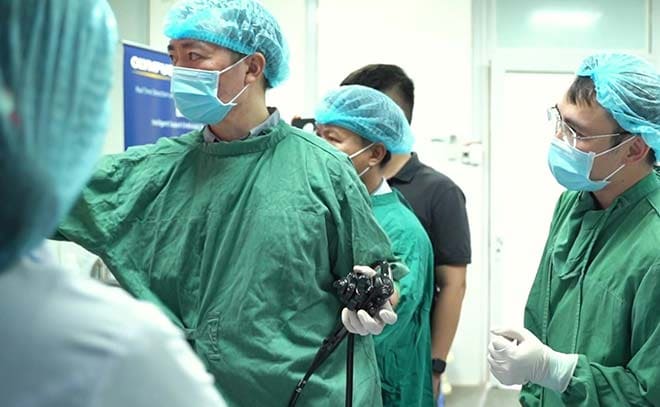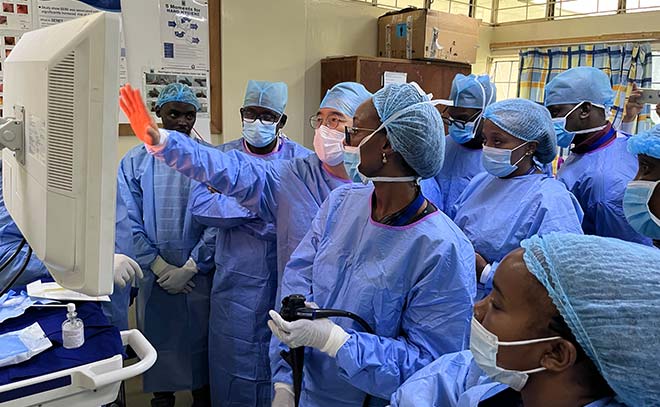"If sharing my experience can help even just one person, I would be happy," says Kathleen Wiltraut, an employee at Olympus America. At age 60, she was diagnosed with stage 3 rectal cancer. After undergoing difficult treatment, she reflects, "This experience has made me a more positive person."
Avoiding endoscopy due to a chronic condition
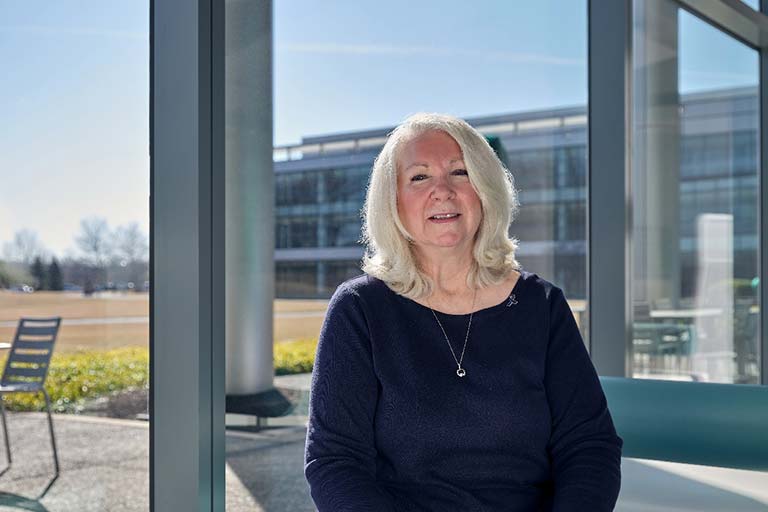
As an Operations Coordinator at Olympus America responsible for medical equipment leasing, Kathleen had long suffered from gastroesophageal reflux disease (GERD). This condition causes stomach acid and food to flow back into the esophagus, creating inflammation. Despite understanding the importance of endoscopic examinations as an Olympus employee, she hesitated to undergo testing.
"I had heard that drinking a large amount of liquid for gastrointestinal cleansing is really difficult for people like me who suffer from GERD," Kathleen explains.
In this context, she took an at-home colorectal cancer screening test in March 2023 at a colleague's recommendation. When the results came back positive, she initially thought it might be a false positive, as her only symptom was mild fatigue.
However, at her family's strong urging, Kathleen decided to undergo a colonoscopy three months later. The preparation wasn't easy.
"I took two laxatives at different times and consumed 64 ounces of water and sports drink. For someone with GERD like me, drinking a large amount of liquid without solid food was as difficult as I had imagined," says Kathleen.
She managed to get through the colonoscopy, but the diagnosis was shocking: stage 3 rectal cancer.
"How do I get the cancer out of me?" - Accepting the illness and handling treatment

Rather than being paralyzed by fear, Kathleen accepted the reality and immediately decided to face her illness with a positive attitude. "OK, now what? How do I get the cancer out of me?" she asked her doctor. This mindset became the driving force that helped her overcome difficult treatments.
Her medical team responded to her positive attitude by actively supporting her. Together, they discussed the best treatment options and began chemotherapy to shrink the tumor before surgery.
Chemotherapy was grueling. Every two weeks, she had to go to the hospital for a two-hour drug infusion and continue wearing a chemotherapy pump afterward. At the beginning of treatment, she was worried about experiencing serious side effects. While she did experience nerve damage (neuropathy) in her fingers and toes as well as hair loss, she considers herself fortunate not to have suffered more severe complications.
After the tumor had shrunk, in December 2023, she underwent a proctectomy to remove the rectal cancer. The surgery to remove the tumor and reconnect the colon and rectum was successful. A temporary ostomy was necessary for subsequent treatment, but it has since been reversed.
Currently, she continues to monitor her condition with blood tests every four months and CT scans and oncology consultations every eight months. Kathleen smiles as she says, "My prognosis is good."
Support from family, friends, and others became a major force in recovery
Having experienced cancer treatment, Kathleen expresses gratitude for the support of those around her. In her case, her fiancé accompanied her to every examination and chemotherapy session, while her mother and daughter provided unwavering support. Friends sent warm messages. These various forms of support, both large and small, made a significant impact on her emotional stability and recovery.
"Just having someone there to hold your hand or give you a hug eased the difficulty of the treatment," Kathleen says.
Olympus America, her employer, also provided significant support by arranging flexible working conditions and a workplace environment that lightened the burden of her medical appointments. This experience reaffirmed her belief that Olympus is a company that truly values its employees.
"I've become a more positive person" - What she wants to share after fighting illness
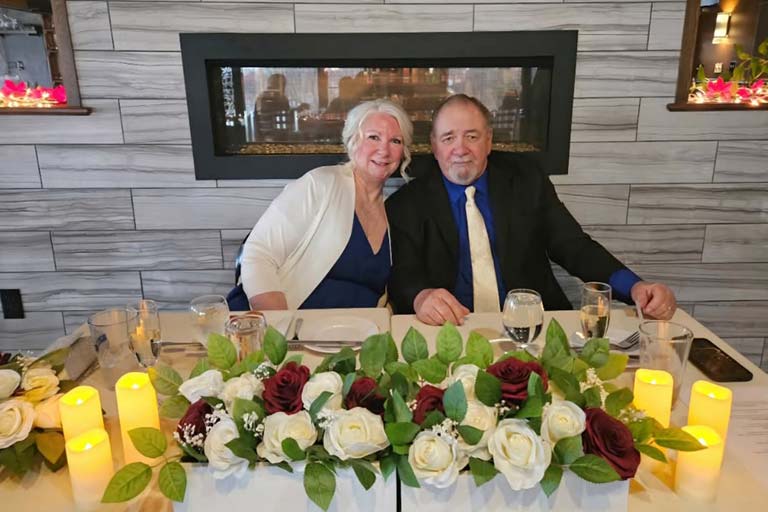
The battle with cancer significantly changed her outlook on life. "Through this experience, I've become a more positive person."
"I survived, but some others didn't. As I wondered why, I came to believe that I still had things to accomplish in this life," says Kathleen. A new sense of purpose has emerged, and she now strongly feels that she must "cherish each day."
Currently, Kathleen is focusing on activities to convey the importance of early screening. She wants to encourage people not to avoid colonoscopies simply because "the preparation is difficult." The examination could potentially save lives. "Don't try to handle everything alone; seek help from professionals and those around you," Kathleen urges.
There have also been unexpected changes in her personal life. The bond with her fiancé of 12 years has deepened further, and "we decided to get married officially," says Kathleen. In her professional life, she continues to study towards a degree in human resource management while maintaining work-life balance through remote work.
She always looks for the bright side of things. "Everyone feels down sometimes. But I always try to find at least one good thing. How we face challenges is something we can decide for ourselves."
※ This story is based on an interview conducted in February 2025. The conditions, feelings and treatment of each patient may vary from person to person. Please consult your doctor for your diagnosis and treatment.





